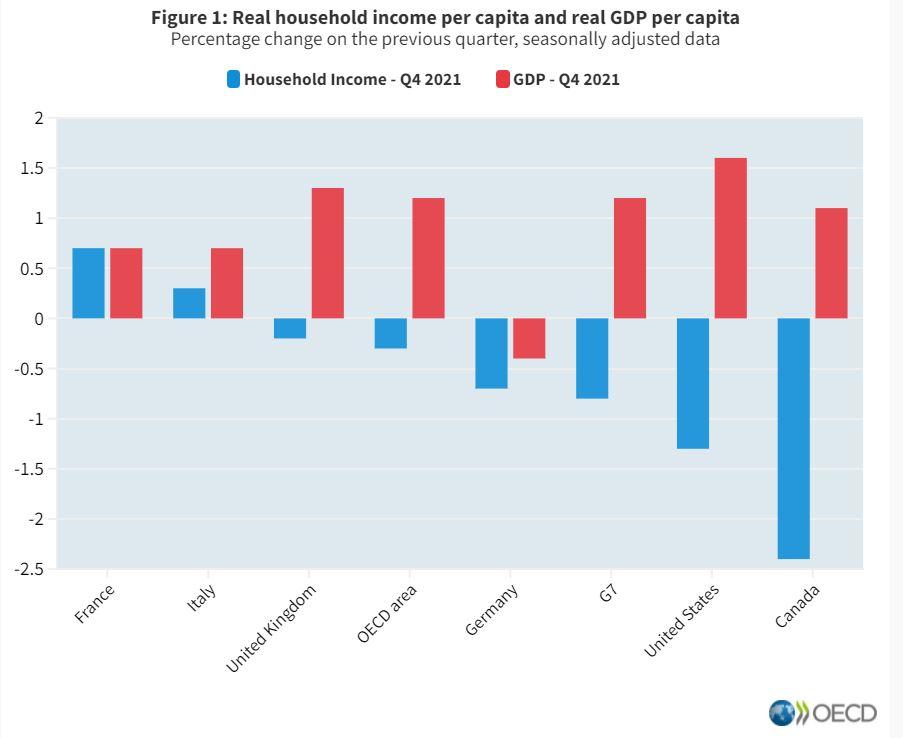By : Mohamed Ettar - Wael Elhoseny
In the OECD area, GDP per capita rose by 1.2% quarter-on-quarter in the fourth quarter of 2021, but real household income per capita fell by 0.3% (Figure 1). Real household income per capita has stagnated during the past six months and trailed growth in GDP per capita for the third consecutive quarter.
While the trend in GDP per capita reflects the recovery in economic activity after sharp declines in the early stages of the pandemic, the trend in household income per capita reflects, among other things, reductions in pandemic-related government assistance paid to households since early 2021. Nevertheless, household income was 3.8% higher in the fourth quarter of 2021 than it was in the fourth quarter of 2019, before the start of the pandemic.
Among the G7 economies (excluding Japan, for which 2021 quarterly household income estimates are not yet available: see Country notes), the largest decrease in real per capita household income in the fourth quarter of 2021 was in Canada (minus 2.4% quarter-on-quarter), as government transfers to households continued to decline. Households in the United States, Germany and the United Kingdom also experienced decreases in per capita income (minus 1.3%, minus 0.7% and minus 0.2% respectively). Conversely, real household income per capita rose in France (up by 0.7%) and Italy (up by 0.3%).
In other OECD countries, experience was mixed in the fourth quarter of 2021. There were decreases in per capita household income in Belgium (minus 3.0% quarter-on-quarter), Finland (minus 2.7%) and Spain (minus 1.6%). However, strong growth was recorded in Hungary (3.2%), Portugal (3.0%) and Denmark (2.2%).













































































